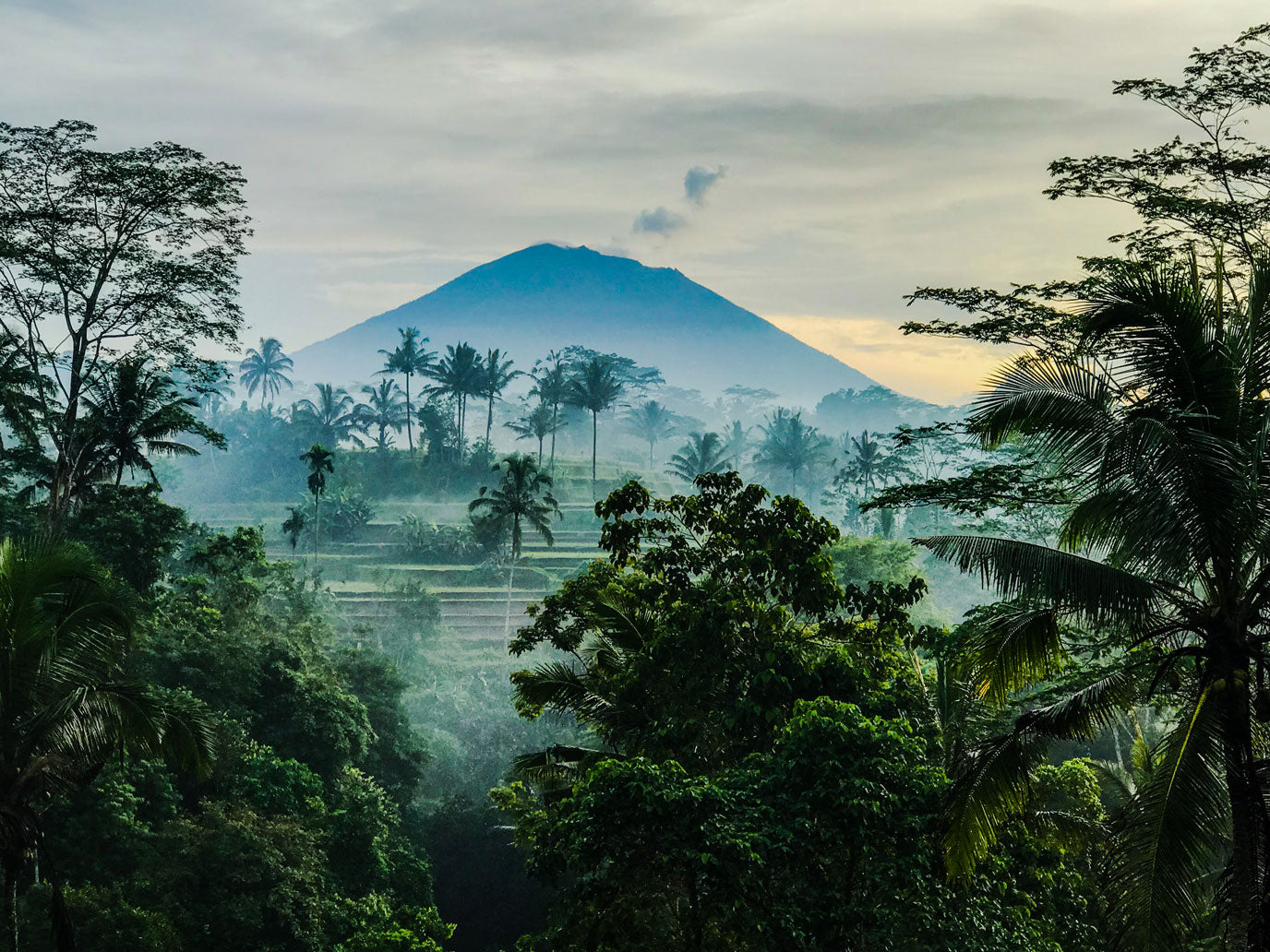MASTER OF CRAFT
AN ARTISAN WAY OF LIFE
UBUD, BALI
Scroll to explore
The Story
IN CONVERSATION WITH NI MADE RENTINI
JEWELRY ARTISAN IN UBUD, BALI
Ni Made Rentini is a jewelry artisan employed at John Hardy, a luxury jewelry brand established in Bali, Indonesia in 1975. John Hardy is known for its dedication to preserving the traditional arts of the Balinese culture through its hand-crafted jewelry made exclusively from ethically sourced gemstones and reclaimed silver and gold.
Rentini has mastered the craft of chain weaving over the twenty years she has spent working at the company. She likens her work process, although more complicated in the nature of its design and materials, to that of the weaving skills passed down from generation to generation and used in the communities to fashion the offerings for daily temple rituals.

Having
NI MADE RENTINI, JEWELRY ARTISAN
a sense of artistry is important,
because we use it in
everyday life.
S+O — HOW IS ARTISTRY AND CRAFTSMANSHIP AN ESSENTIAL PART OF LIFE ON THE ISLAND?
Rentini — I believe that Bali is unique due to the close link between artistic expression and native culture. We incorporate it in our daily life. At home, we work closely with our neighbors to prepare for the temple ceremonies by weaving the offerings. Traditional Balinese architecture, including the design of our temples, still incorporates the art of carving, wood-working and sculpturing as it is demonstrated in our local communities.
S+O — HOW HAS JOHN HARDY BEEN IMPACTFUL IN PRESERVING SOME OF THESE TRADITIONS?
Rentini — John Hardy employs more than seven hundred people from the surrounding areas. For this reason only, its contribution to the island has been invaluable. But it has also been very impactful in preserving our traditional techniques and giving us opportunities to use these skills beyond the temple ceremonies. All of the original design process, like sketching, hand-carving and weaving, is still done by hand, so we get to employ these techniques every single day.

S+O — WHAT KINDS OF ARTISTIC TALENTS ARE PROMINENT IN YOUR FAMILY?
Rentini — The artisan blood definitely runs in my family. My father specializes in Bale Bandung, a type of traditional Balinese architecture. He has made wood and stone carvings for the local temples as well. Serving our ancestral arts in a different way, my older son does traditional dancing while my younger one plays the Saron, an indigenous musical instrument.
S+O — HOW HAS YOUR OWN ARTISTIC BACKGROUND INFLUENCED YOUR WORK HERE?
Rentini — I've been working with the company for twenty years. My profession definitely requires having traditional artisan skills, but when I first started I didn’t know how to apply them to my work. I acquired my skill in chain weaving here and have solely focused on it until I became a master. Currently I am involved in other parts of the process as well, but my main focus is still weaving the chain.
S+O — EXPLAIN THE PROCESS OF CREATING A CHAIN.
Rentini — There are many styles of chains, classic, square and others, but the process is similar for each style. It starts with making a coil from the reclaimed silver wire, then cutting and making adjustments to the links. I put them in rows, hand-solder and pinch them, all before the weaving process can begin. Then the weaving takes place. I love this part of my work. It makes me happy and feels like a meditation session.
After the weaving is finished, the chains are turned over to my male colleagues. They stretch and then massage the stiff chain to soften it and meld it into the finished product.
This is a long process, as you can imagine, since it is done by hand. It takes one full day just to weave a chain, and around four days to complete a bracelet.



S+O — WHAT ARE THE OTHER ARTISTIC PROCESSES EMPLOYED BY ARTISANS WITHIN THE WORKSHOPS?
Rentini — There are designers who are tasked to come up with sketches of jewelry for our collections. After the designs are ready, each piece is molded into a green wax, a process done entirely by hand. Once the wax mold form is approved, a silver cast is made to produce a master for the original design. The master awaits approval before the components of the jewelry are assembled to fashion the desired piece. Again, all of these workshop techniques are done entirely by hand.



S+O — ASIDE FROM EXPRESSING YOUR CREATIVITY, WHAT DO YOU ENJOY MOST ABOUT YOUR WORK?
Rentini — I cherish my work environment and my team. Given that I have been here for so many years, we have shared many memories. It’s really like a family, and I do have relatives who work here as well. The other advantage is that I can take care of my own family and spend quality time with them. I started working here when my oldest son was one and a half years old. I live so close to the workshop that I have the privilege of going home and seeing my children during my lunch break.



Credits
Photography by Stephen Wayda
Film by Chris Low
Special Acknowledgments - Prerna Balani, Polly Purser and Sri Utami of John Hardy
The Objects
Exclusive Edition 022 BALINESE DESIGNED JEWELRY BY JOHN HARDY
John Hardy was founded on Bali in 1975 as an artisan collective dedicated to creating one-of-a-kind jewelry and preserving the rich heritage of the island. At the forefront of the sustainable luxury movement then and now, John Hardy’s extensive jewelry offerings are diverse in design, but still thoughtfully inspired by the cultural motifs, nature and people of the notable Indonesian paradise. Each piece of jewelry is designed and carefully handcrafted by the master artisans employed at the company’s workshop near Ubud, Bali.
The Destination
UBUD, BALI
Bali is known for its idyllic beaches and surf breaks, but a more relaxed and verdant beauty awaits travelers willing to traverse the land to the more pristine jungle and rice paddy landscapes surrounding Ubud. The UNESCO designated water canals and sacred flowing rivers dominate the scenery which is a welcome respite from the cacophonous and chaotic streets of Kuta, Seminyak and beyond. Ubud town is a lively, yet more relaxed, mix of locals and artistic-leaning ex-patriots which means there is a nice balance of the quiet nature one desires and high quality amenities. Traditional Balinese culture and design is a focus with hotels like COMO Uma Ubud offering unique experiences to guests to delve into the essence of what makes the island such a unique and wonderful place to visit.



